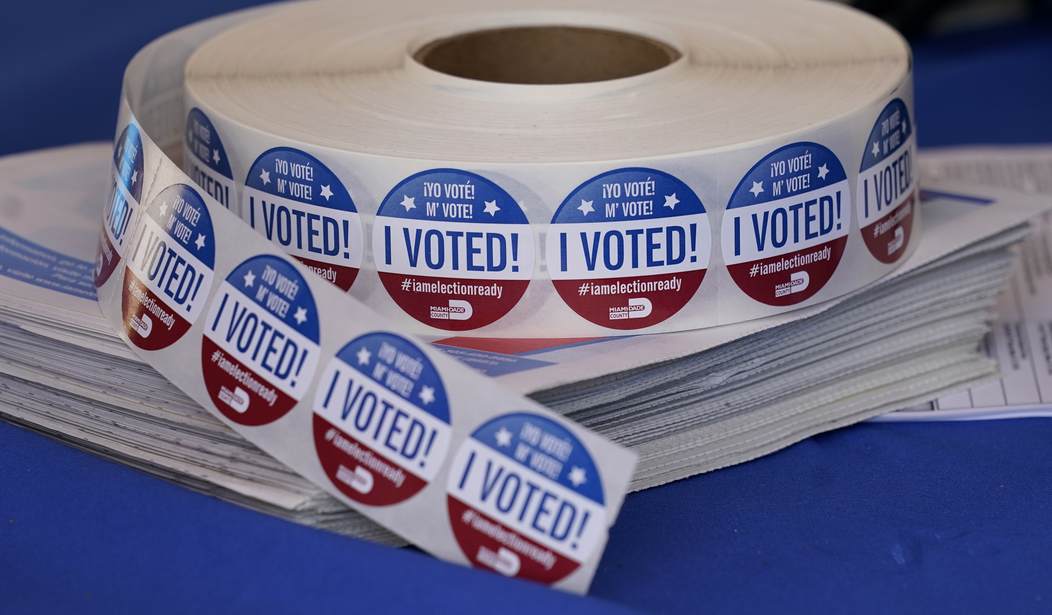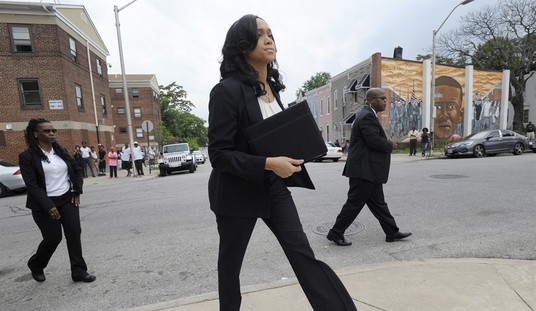We’re seeing some considerable buzz this weekend over a voter fraud case in Houston, Texas, where one man’s five minutes of internet fame could land him in jail for decades. Hervis Rogers briefly went viral on social media back in March when he was the last person in line to vote in the primary on Super Tuesday at his polling place at Texas Southern University. He waited in line until one o’clock in the morning before finally casting his ballot and proudly posting a selfie. This led to people praising him for his tenacity in performing his civic duty.
There was just one problem. Rogers was ineligible to vote. It’s unclear how this eventually came to the attention of Texas Attorney General Ken Paxton, but Rogers was arrested on Wednesday of this week and is now being held on $100,000 bail, which he is apparently unable to pay. If convicted, he could face up to 20 years in prison. This has the ACLU and other activist groups up in arms, saying the punishment far exceeds the crime. But as we’ll see, there’s more to the story of Hervis Rogers than first meets the eye based on these headlines. (NPR)
Rogers was arrested on Wednesday in the South Acres neighborhood in Houston, and he voted in Harris County, but the AG’s office is prosecuting the case in Montgomery County. Rogers is charged with two counts of illegal voting. His bail is set at $100,000.
Rogers is represented by the ACLU of Texas and Nicole DeBorde Hochglaube.
“Mr. Rogers is being held in jail on an extremely high bail amount that he cannot afford for what amounts to simply attempting to fulfill his civic duty. This is not justice,” said ACLU of Texas legal director Andre Segura.
Were I to learn of some person who violated a voting law by accidentally casting a ballot at the wrong polling place or something similar who was then slammed with $100K bail and a long prison sentence, I would find the result to be massively excessive. But that wasn’t the case here.
Hervis Rogers was convicted in 1995 of burglary and intent to commit theft and sentenced to 25 years in prison. He was released on parole in May of 2004 and his parole was set to end in June of 2020. So he was still on parole on Super Tuesday. In Texas, like many other states, felons on parole are not allowed to vote, so the charge against Rogers seems to be a fairly open and shut case.
I couldn’t locate further details of his record, but it’s basically unheard of for someone to take a 25-year sentence for their first offense, particularly for a property crime like burglary or theft. Also, you don’t tend to get that long of a stretch on parole for a first, relatively minor offense. With that in mind, I’m going to go out on a limb here and say that Mr. Rogers had experienced previous “encounters with lawn enforcement” prior to 1995. Also, when you are on parole, you’re supposed to be keeping your nose clean. Having been found to have committed voter fraud would be an automatic parole violation, putting him back behind bars.
So all of the headlines describing him as someone who is being held on astronomical bail and potentially facing decades behind bars “just for casting an ineligible vote” don’t really tell the whole story. Rogers claims that he was unaware that he couldn’t legally vote and perhaps that’s true. Unfortunately, the longstanding legal principle informing us that “ignorance of the law is no excuse,” exists for a reason. We also have to wonder about Rogers’ voting record. He’s been out on parole for 17 years. Has he never voted in all of that time? And if so, why not? The alternative is that he may have voted illegally a half-dozen or more times already without being detected, all the time believing that he could legally vote. Neither scenario is optimal.
Is Ken Paxton coming down hard on Hervis Rogers to make an example of him? I’m not ruling that out. The Texas state legislature is about to begin a special session where they will be considering their new voting and election integrity bill. I’m sure that making a big deal out of prosecuting examples of voter fraud plays into the political optics surrounding that effort. And I would agree that even with Rogers’ aforementioned history with the criminal justice system, sending him back to jail for 20 years at this point would seem quite excessive. But it’s also not as if he’s being sent up the river on phony charges, either.







Join the conversation as a VIP Member